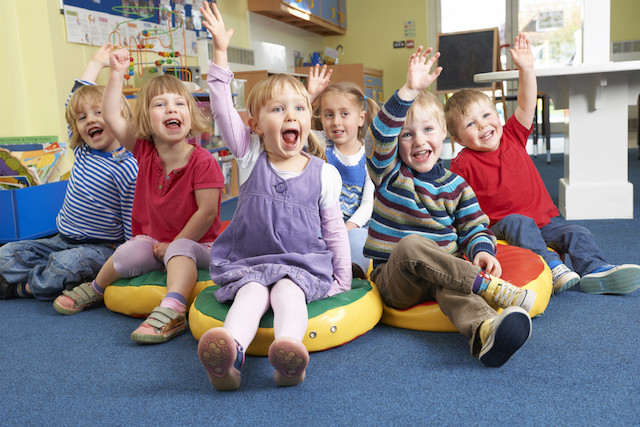Somewhere in Luxembourg, around 100 school children are getting on with their work, reading and writing in German, with ease. The image should not be so spectacular but, in a country where 45% of children aren’t reaching expected reading levels at the age of 9, it is a rare sight.
But, this group of youngsters is special. They were the guinea pigs for Lala (Lauter lëschteg Lauter), a groundbreaking new pre-literacy programme that has emerged out of a research project from Pascale Engel de Abreu of the University of Luxembourg. “Almost half of our children are struggling to read in German,” she told Delano in an interview this week. “The statistics are even worse for children who don’t speak Luxembourgish or German at home. Among this group, 60-70% of children aren’t reaching the standard reading levels.”
Having completed previous research on child development with disadvantaged children, in places including Africa, Bolivia and Brazil, Abreu recognised the implications were devastating for young people. “If children struggle to read, they will struggle as a consequence with other subjects.”

Photo: Pascale Engel de Abreu. The associate professor at the University of Luxembourg won a National Research Fund (FNR) award for the Lala programme
Testing in Luxembourg
Around six years ago, Engel de Abreu began an applied research project in which she intended to adapt and test an existing reading programme on Luxembourg learners at pre-school. After researching 25 programmes from Germany, France, the US and UK, she realised none would fit the particular multilingual educational environment found in Luxembourg. Not one to be put off, she developed her own from existing models.
“During the first two years, I developed the project in collaboration with teachers. That was important as it meant I could get feedback straight away,” she says. Then came the moment of truth--a test group of 200 children was selected, half of which followed the Lala programme for 12 weeks, leaving the remaining 100 as a control group.
Both groups were tested before the project, immediately afterwards and then nine months after the end. “The results were better than we could have dreamed of, which is rare,” she laughs. “We found immediately after our intervention (test phase 2) that the Lala intervention had helped the children acquire the skills they were supposed to. But only the children who did Lala.”
She adds the most important finding for her team was the realisation that in Year 1, the last testing phase, the children were better prepared to read and write in German, even though the language of the pre-school is Luxembourgish. “That was important because it’s the first time that we’ve showed this.”
Closing the achievement gap
Engel de Abreu was also heartened to observe that children who don’t speak Luxembourgish at home (L2), among the most at risk learners in the system, made the most significant progress. “Through Lala, the L2 learners came up. That was nice and showed that the achievement gap closed in schools that worked on Lala,” she says.
The biggest surprises came after the programme ended, however, as teachers continue to use the Lala materials and parents and schools have contacted her to ask how they can get hold of it.
“I was always concerned about the possibility to implement it in schools. It follows the Luxembourg pre-school curriculum and that’s one reason why I do it in Luxembourgish, the language of instruction in preschool. So, it wouldn’t need a huge change.”
The groundbreaking work was recognised by Luxembourg's national research fund, the National Research Fund (FNR), who gave the associate professor an outstanding research-driven award in 2018.
Engel de Abreu is now in talks with the education ministry on making the materials available across all schools in Luxembourg. “I’m a mother as well. I thought, if my child went to a school not using this programme, I’d be disappointed,” she says.
In the meantime, she and a PhD student continue to monitor the progress of the test group to observe the impact of the programme as they learn to read and write in French.
